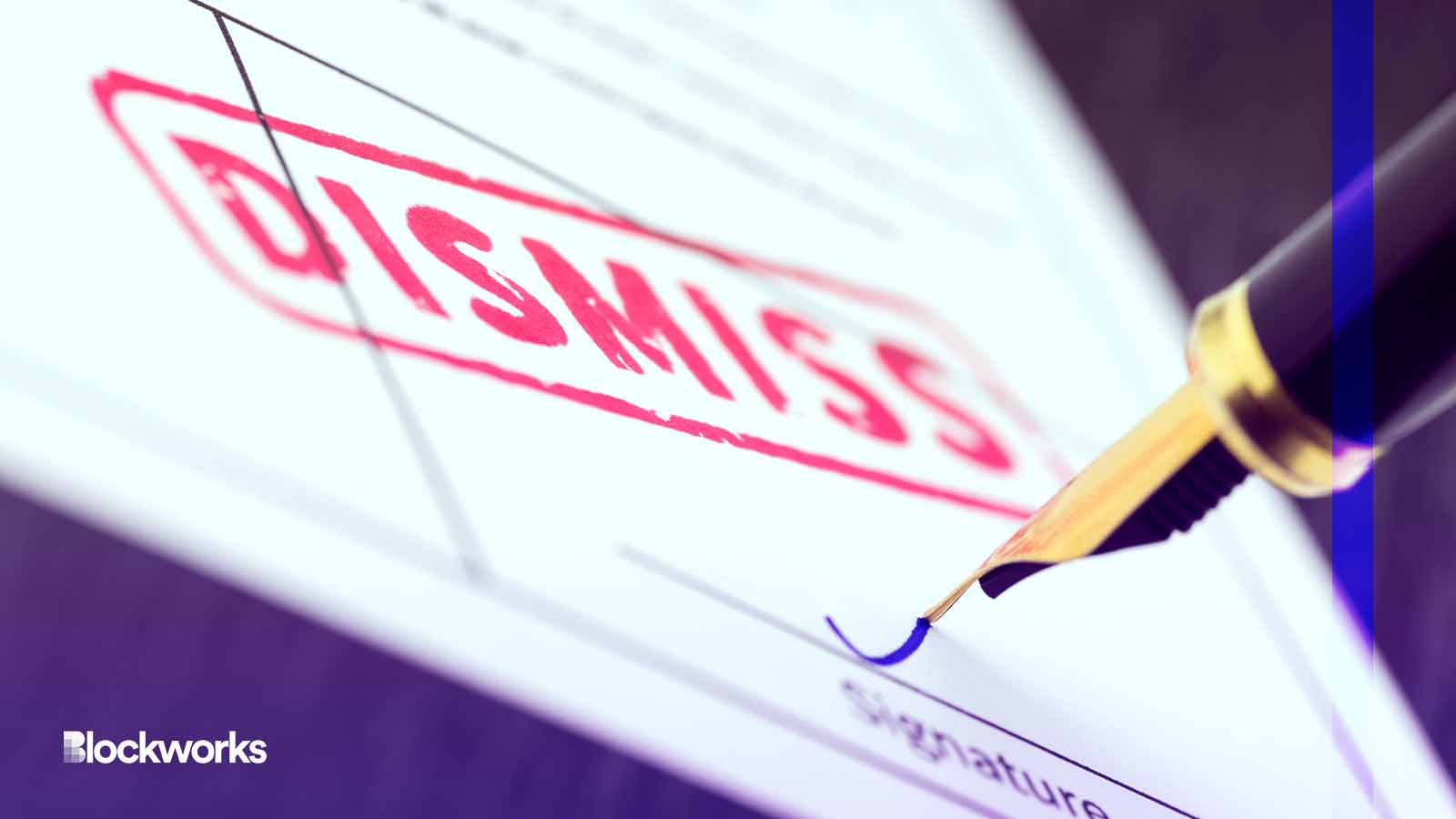Court sides with Uniswap over class action suit
The Court said that concerns around unregistered securities were better addressed to Congress

chase4concept/Shutterstock modified by Blockworks
A class action complaint against Uniswap was tossed on Tuesday, Aug. 29 after the judge found that some of the claims were “devoid of factual support.”
Judge Katherine Polk Failla oversaw the case — she is also overseeing the US Securities and Exchange Commission’s case against Coinbase — and issued the ruling on the dismissal.
“Due to the Protocol’s decentralized nature, the identities of the Scam Token issuers are basically unknown and unknowable, leaving Plaintiffs with an identifiable injury but no identifiable defendant,” the judge wrote.
Read more: SEC sues Coinbase for alleged securities violations
She added that the plaintiffs launched the suit “hoping that this Court might overlook the fact that the current state of cryptocurrency regulation leaves them without recourse.” But that does not allow them to blame Uniswap for their injury.
The original complaint filed last year alleged that Uniswap, founder Hayden Adams, Andreessen Horowitz, and Paradigm were responsible for “rampant fraud” on the exchange, and also pushed for Uniswap to register with the Financial Industry Regulatory Authority.
Furthermore, plaintiffs also alleged that Uniswap “offered and sold unregistered securities.”
Failla said that due to the regulatory landscape and the unknowns that currently exist — meaning, despite the SEC’s various lawsuits and claims that certain crypto assets are securities — there has yet to be a “definitive determination” on whether certain crypto assets are commodities, securities, etc.
The Court “concludes that Plaintiffs’ concerns” around federal securities laws “are better addressed to Congress than to this Court.”
Despite claims that Uniswap is “run as a for-profit business,” Failla said that there is no centralized ownership structure.
“The Court finds that the smart contracts here were themselves able to be carried out lawfully, as with the exchange of crypto commodities ETH and Bitcoin,” the ruling said.
The defendants, in a move to dismiss the suit, compared the plaintiff’s claims to holding a “developer of self-driving cars liable for a third-party’s use of the car to commit a traffic violation or rob a bank.” The Court noted that the argument held merit, saying that the individual who committed the crime was in the wrong, not the car company.
Uniswap’s chief legal officer Marvin Ammori took to X, formerly Twitter, to praise the win, saying that the Court found that the “Uniswap protocol has primarily lawful use & protocol devs aren’t liable when others misuse it. The trend in courts is obvious.”
Failla goes on to compare the suit to one “attempting to hold an application like Venmo or Zelle liable for a drug deal that used the platform to facilitate a fund transfer.” The platform is not at fault, but rather whoever was responsible for the “Scam Token.”
While the SEC is still early in its approach to DeFi, the court notes, the complaints alleged by the plaintiffs are not applicable until there’s a framework for liability. It dismissed not only the federal claims, but the state claims as well.
Get the news in your inbox. Explore Blockworks newsletters:
- The Breakdown: Decoding crypto and the markets. Daily.
- 0xResearch: Alpha in your inbox. Think like an analyst.






